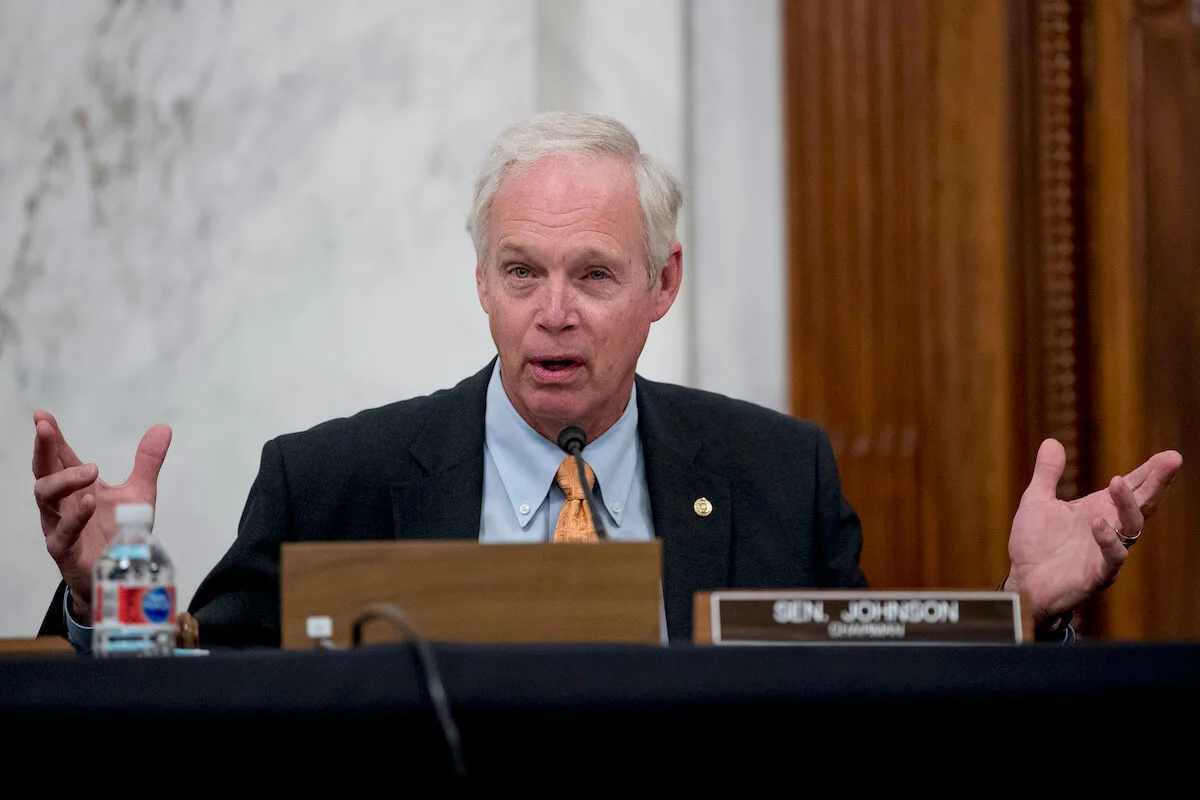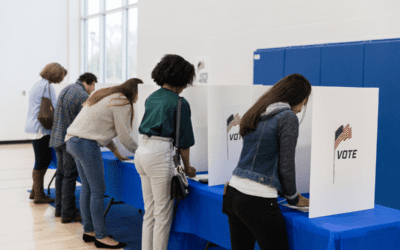
#image_title
The Republican Senator has voted against providing help five different times, often citing deficit concerns that don’t seem apparent when passing budget-busting tax favors.
When the US Senate passed a bipartisan spending bill in March that included $13.6 billion in critical humanitarian and military aid for Ukraine, 68 senators voted for the measure. Wisconsin Sen. Ron Johnson was not one of them.
The Republican incumbent, who’s up for re-election this November, cited inflation and issues with the legislative process as reasons why he voted against the bill and its efforts to help Ukraine withstand an ongoing Russian invasion.
“Once again Congress is voting on a massive bill – 2,700 pages – that no one has had time to read, spends $1.5 trillion, and further mortgages our children’s future,” Johnson said. “Even though this bill funds many important priorities, I simply cannot support such a dysfunctional and harmful process.”
Johnson—who expressed no such reservations about how his 2017 tax cut for billionaires would impact future generations—is no stranger to voting no when it comes to helping Ukraine withstand Russian aggression.
Between 2014—when Russia first invaded and annexed the Crimean peninsula in southern Ukraine—and 2021, Johnson voted against providing aid to Ukraine four different times:
- In Fiscal Year (FY) 2015, he voted against providing $47 million for Ukraine via the Foreign Military Financing (FMF) program.
- In FY 2018, Johnson voted against giving Ukraine $95 million via the FMF and $195.5 million via the Ukraine Security Assistance Initiative (USAI).
- In FY 2020, he voted against giving Ukraine $115 million via the FMF and $256.7 million via the USAI.
- In FY 2021, Johnson was one of six senators to vote against giving Ukraine $115 million in FMF financing and $275 million for the USAI.
This money went to help train and equip the Ukrainian Armed Forces, which has thus far withstood the Russian attack with impressive resilience. Johnson did vote to provide Ukraine with hundreds of millions of dollars in aid via three yes votes for spending bills for Fiscal Year (FY) 2016, 2017, and 2019, but he’s also been a reliable faucet of Russian misinformation tied to Ukraine over the years.
Johnson—who vacationed in Moscow during the July 4th holiday in 2018—also tried to pin the blame for the Russian invasion on the Democrats’ first impeachment of former President Donald Trump. In 2019, Trump withheld critical aid to Ukraine and tried to pressure Ukrainian President Volodomyr Zelenskyy to investigate then-candidate Joe Biden. To hear Johnson tell it, this impeachment of Trump over his shakedown of Zelenskyy is why Putin invaded Ukraine.
“I don’t think Vladimir Putin would have moved on Ukraine were it not for the weakness displayed—certainly by the Biden administration but also by the west in general,” Johnson said in late February. “And I’m certainly hoping that Col. [Alexander] Vindman, [US Rep.] Adam Schiff, [Speaker of the House] Nancy Pelosi, who used Ukraine as a pawn in their impeachment travesty are also recognizing, reflecting how they weakened Ukraine, weakened the west, weakened America by the divisive politics that they play.”
As public sentiment quickly became almost universally pro-Ukraine, however, Johnson appeared to reverse course. He called Putin a “war criminal” and sought to burnish his own pro-Ukraine credentials by co-sponsoring new bills and issuing statements aimed at supporting Ukraine.
Johnson also called on Biden to expedite the transfer of aircraft and air defense systems, as well as additional support capabilities to Ukraine. Ironically, that demand came one day after he voted against giving Ukraine $13.6 billion in aid.
The mixed record on aid to Ukraine is emblematic of a fractured Congress that has yet to pass a single standalone measure related to the war—measures that would ban Russian oil imports, remove trade preferences, denounce Putin as a war criminal, and give the government more resources to go after the assets of Russian oligarchs. Each has stalled, for reasons ranging from fiscal to social issues to basic mistrust between parties as politicians jockey ahead of midterm elections that will determine who controls Congress next year.

Opinion: Many to thank in fair maps victory for Wisconsinites
On February 19, 2024, Governor Tony Evers signed into law new and fair state legislative maps, bringing hope for an end to over a decade of...

Opinion: Empowering educators: A call for negotiation rights in Wisconsin
This week marks “Public Schools Week,” highlighting the dedication of teachers, paras, custodians, secretaries and others who collaborate with...

Op-ed: Trump’s journey from hosting The Apprentice to being the biggest loser
Leading up to the 2016 election, Donald Trump crafted an image of himself as a successful businessman and a winner. But in reality, Trump has a long...

Not just abortion: IVF ruling next phase in the right’s war on reproductive freedom
Nearly two years after the US Supreme Court overturned Roe v. Wade, another court is using that ruling to go after one of the anti-abortion right’s...




